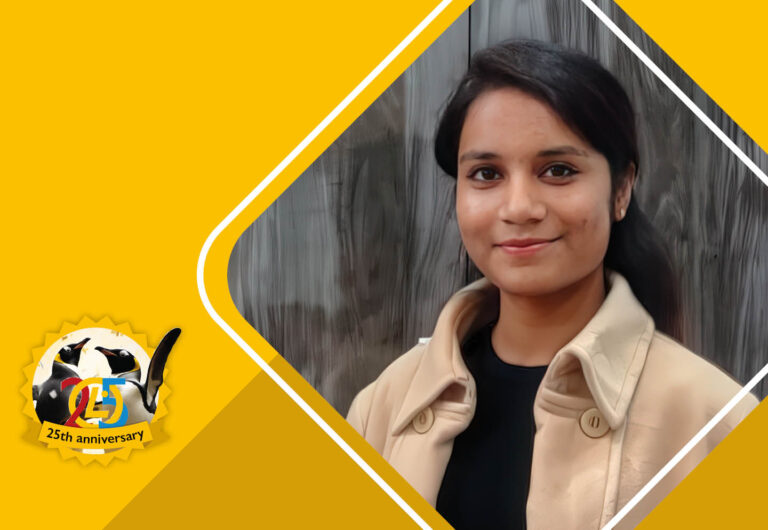Riya Singh: Linux Changed How I Learn and Build Systems

When I first began exploring the world of technology, Linux appeared to be just another operating system—an alternative to Windows or macOS, typically associated with developers and IT professionals. But as I advanced through my studies in Computer Science and Engineering, with a specialization in Artificial Intelligence and Machine Learning, at Chandigarh University in India, I quickly came to see Linux as far more than just a platform for running applications. It became a foundation for my learning journey, a key to sharpening my problem-solving skills, and a powerful driver of my professional development.
Initially, my exposure to Linux was mostly theoretical, limited to textbooks and classroom lectures. I understood its relevance in system administration, open source ecosystems, and enterprise computing. But everything changed when I started engaging with Linux hands-on. That’s when I truly began to appreciate its potential.
A New Mindset: Problem-Solving Through Open Source
Beyond its technical capabilities, Linux opened the door to the broader philosophy of open source collaboration. Unlike proprietary systems, where development is confined to closed teams, Linux thrives through transparency, shared innovation, and the contributions of a global community.
As I became more involved with open source projects, I discovered the tremendous value of learning from others, and teaching back in return too—engaging in discussions, contributing to codebases, and collaborating with developers from diverse backgrounds. These experiences sharpened my programming skills, deepened my understanding of software development best practices, and offered significant insights into how complex, large-scale systems are built and sustained.
Working with Linux in both academic and research contexts also highlighted the power of self-driven learning. In the open source ecosystem, formal lessons often take a back seat to experimentation and community exchange. Developers learn by doing—by breaking things, fixing them, and sharing solutions. This environment has taught me to be proactive, curious, and solution-oriented—qualities that are essential in today’s fast-moving tech landscape.
Bridging Theory with Practical Knowledge
A major turning point in my learning journey came when I decided to pursue a Linux certification. Up to that point, much of my understanding of Linux was conceptual. The certification path changed that, by introducing me to real-world scenarios, system configurations, troubleshooting techniques, and automation strategies that went far beyond what I had previously encountered.
Through hands-on training, I gained practical skills in navigating the Linux command line, writing shell scripts, and configuring network systems and security protocols. Learning how to automate repetitive tasks, fine-tune system performance, and manage large-scale server environments was truly eye-opening. I began to understand how deeply Linux is embedded in areas such as AI development, cloud computing, and cybersecurity.
This deeper expertise had an immediate and tangible effect on my academic work. From managing large datasets and setting up AI training pipelines to deploying machine learning models on Linux-based cloud platforms, Linux became central to how I tackled technical challenges. It enabled me to go beyond traditional programming and AI development into more advanced territories like server management, containerization, and high-performance computing.
Preparing for the Industry with Linux
As I transitioned from academic projects to internships and industry collaborations, my proficiency in Linux quickly became one of my most valuable assets. With many AI, machine learning, and cloud environments built on Linux, this expertise provided a strong foundation in both research and professional contexts.
Whether I was working on high-performance computing clusters for AI model training, optimizing GPU-accelerated deployments, or securing data processing pipelines, Linux consistently played a central role in overcoming technical challenges. My familiarity with Linux-based systems allowed me to focus on innovation rather than foundational system administration tasks—something that mentors and employers immediately recognized and appreciated. It positioned me to make meaningful contributions to real-world projects from day one.
A Journey Rooted in Linux Through AI, the Cloud, and Beyond
While earning a Linux certification laid the groundwork for my journey, my experience with Linux now extends far beyond a formal credential. It has evolved into a core skill set—one that I continue to strengthen through building AI-driven solutions, managing cloud-native infrastructures, and contributing to open source projects.
Today, I see Linux not merely as an operating system, but as a mindset, and a community, rooted in exploration, innovation, and continuous problem-solving. It has influenced the way I approach technology, research, and collaboration, and I know it will remain central to my path as I grow in the realms of AI, data science, and open source development.
For both students and professionals, learning Linux is more than acquiring a technical skill. It’s about cultivating the adaptability, curiosity, and collaborative spirit needed to thrive in the future of technology.
<< Read the previous post of this series | Read more LPI success stories here >>
